
YOUR ALGORITHM SUCCESSFULLY PREDICTED CRIME IN US CITIES A WEEK BEFORE THEY HAPPENED. HOW DID YOU BUILD THE ALGORITHM?
The city of Chicago and the seven other cities that we looked at have started putting out crime event logs in the public domain. In Chicago, these are actually updated daily with a week's delay.
These event logs contain information about what happened, what type of crime it was, where it happened, the latitude, longitude, and a timestamp. In Chicago, we also have information about if there were any arrests made when there were interactions with the police officers.
So we start with this event log and then digitise the city into small areas of about two blocks by two blocks about 1,000 feet [300 metres] across.
And in one of those tiles, we'll see this time series of these different events, like violent crimes, property crimes, homicides and so on. This results in tens of thousands of time series that are coevolving.
What our algorithm does is look at these coevolving time series, then figures out how they are dependent on one another and how they're constraining one another - so how they're shaping one another. That brings up a really complex model.
You can then make predictions on what's going to happen, say, a week in advance at a particular tile, plus or minus one day. In Chicago, for example, today is Wednesday. Using our algorithm, you can say that next Wednesday, on the intersection of 37th Street and Southwestern Avenue, there would be homicide.
HOW DO YOU ENVISAGE THE WAYS YOUR ALGORITHM COULD BE USED?
Diese Geschichte stammt aus der Summer 2022-Ausgabe von BBC Science Focus.
Starten Sie Ihre 7-tägige kostenlose Testversion von Magzter GOLD, um auf Tausende kuratierte Premium-Storys sowie über 8.000 Zeitschriften und Zeitungen zuzugreifen.
Bereits Abonnent ? Anmelden
Diese Geschichte stammt aus der Summer 2022-Ausgabe von BBC Science Focus.
Starten Sie Ihre 7-tägige kostenlose Testversion von Magzter GOLD, um auf Tausende kuratierte Premium-Storys sowie über 8.000 Zeitschriften und Zeitungen zuzugreifen.
Bereits Abonnent? Anmelden
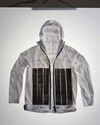
NOW YOU SEE ME, NOW YOU DON'T
Scientists around the world are working on ways to hide us from sight. But how close are we to developing tech that could make us invisible?

UNCORKED POTENTIAL
How much good can ditching drink for a month really do? Answer: a whole lot. In fact, science shows even short-term abstinence could unlock a cocktail of lasting benefits
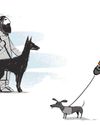
Scientists discover when humans and dogs became friends
The relationship spans thousands of years, but experts might have pinpointed the first connection
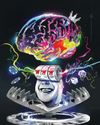
Why it's so hard to kick a gambling addiction
We now know that gambling can be as addictive as drugs, but there are factors that can make it even harder to quit

How much could Ozempic change our world?
The weight-loss drug has made headlines and broken sales records, but what does it mean for our future?
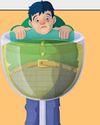
WHY DOES DRINKING ALCOHOL MAKE IT SO MUCH HARDER TO LOSE WEIGHT?
While enjoying the occasional glass of wine or pint of beer may seem harmless, regular or excessive alcohol consumption can significantly hinder your weight-loss journey for a few reasons:

Why do so many New Year's resolutions fail?
Establishing positive new habits is hard at any time of year. But there are ways to stop your attempts ending in failure
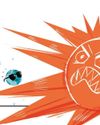
'Extreme' solar radiation storm could hit Earth
Sun-like stars may have tantrums far more frequently than we thought

HOW CAN I BANISH THE JANUARY BLUES?
Dark mornings, long chilly evenings and short days; many people find January tough.

Neutrinos are getting in the way of dark matter detection
These troublesome particles are difficult to detect, but they're starting to show up in places where they're not wanted